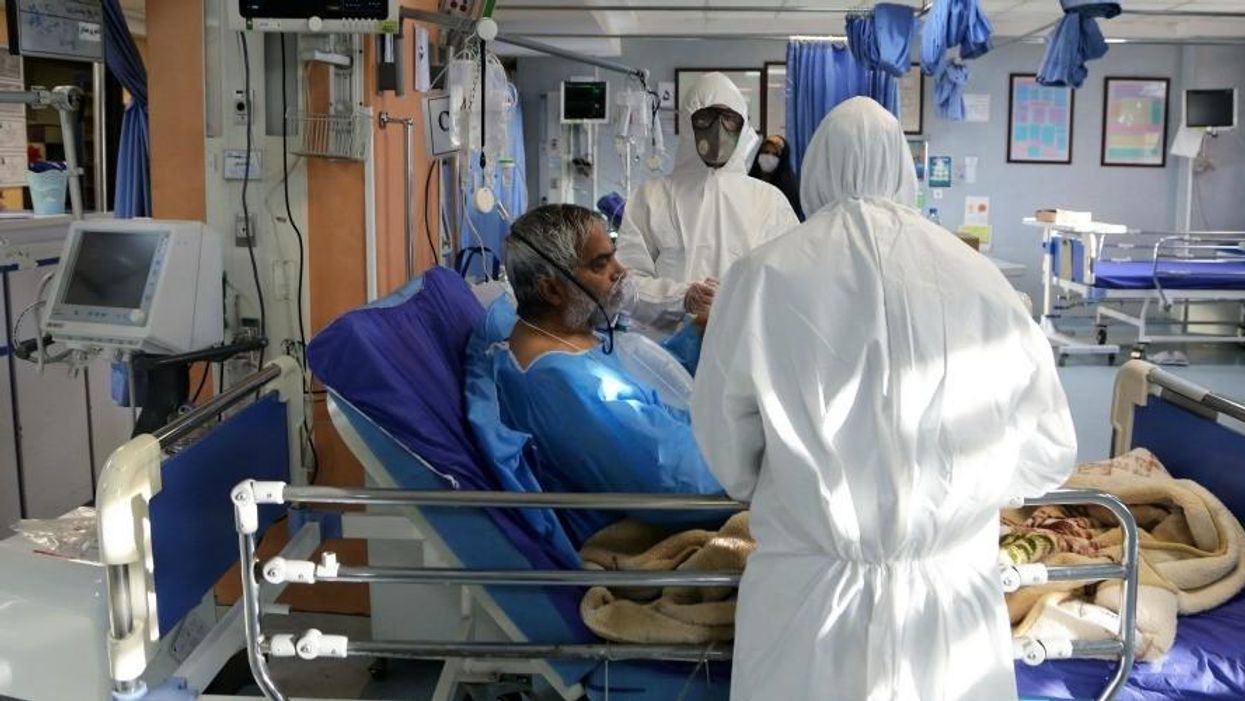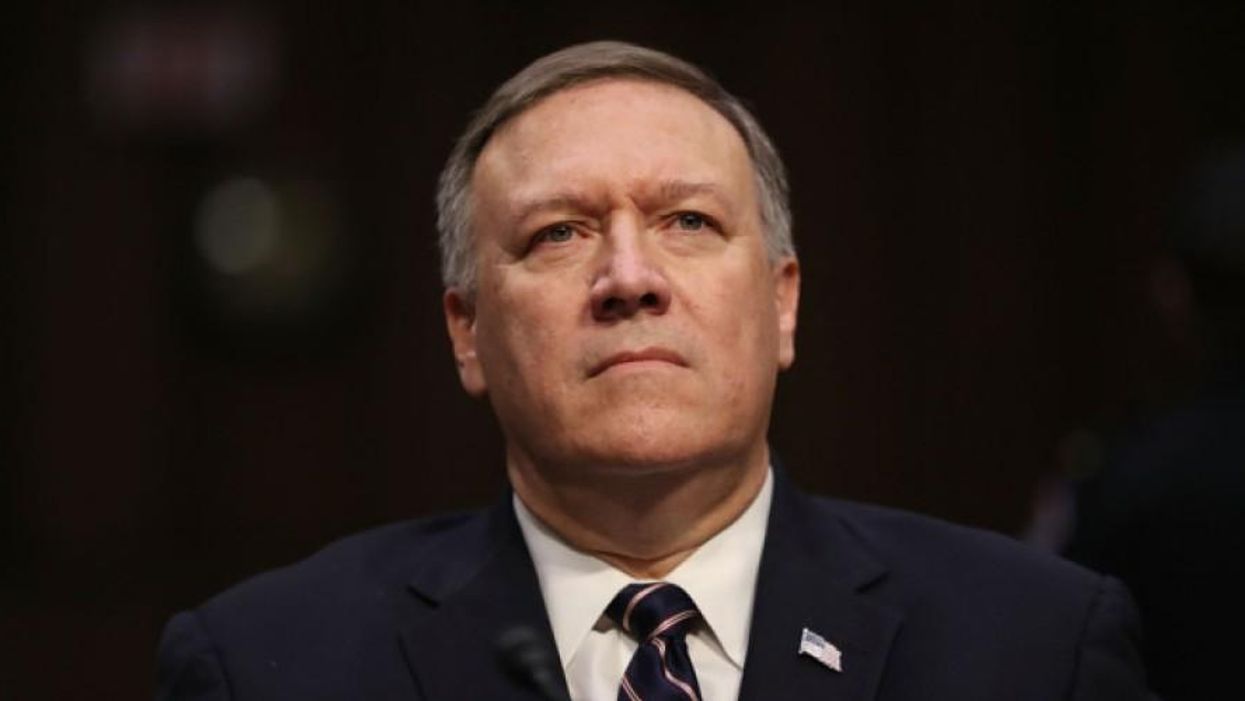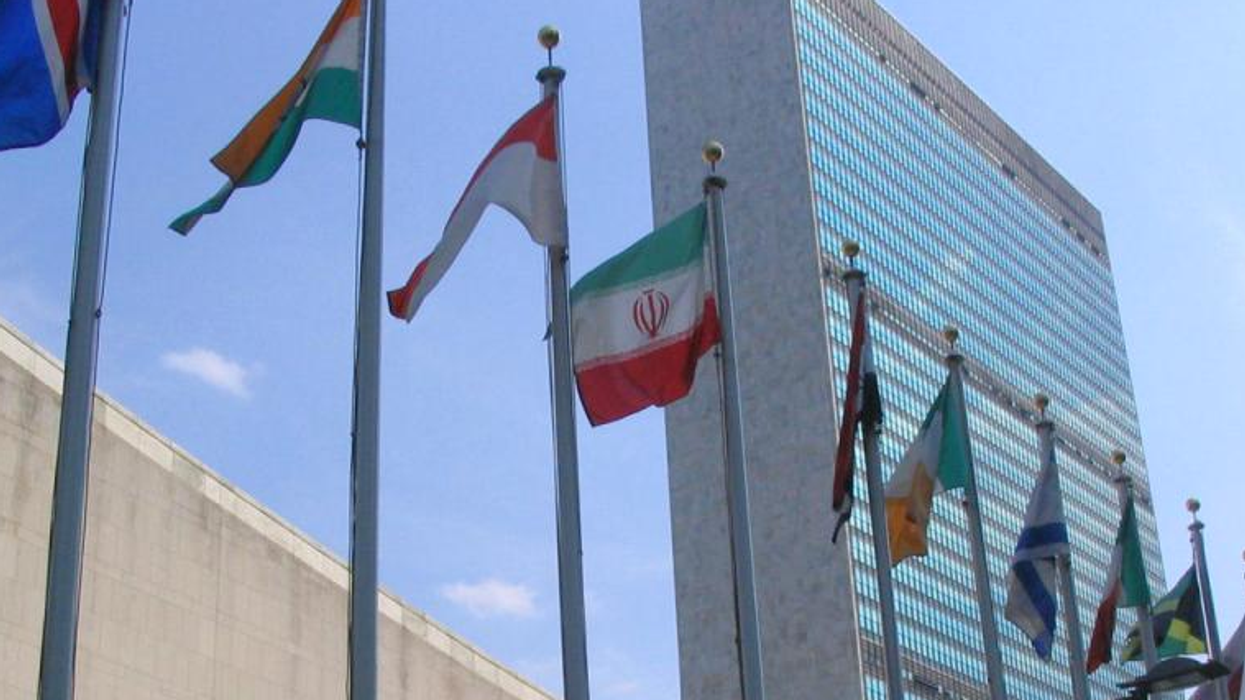The letter from the groups--including human rights and faith-based organizations--praises Biden's announcement on his second day in office that his administration would review all existing U.S. sanctions "to evaluate whether they are unduly hindering responses to the Covid-19 pandemic."
Noting that the pandemic "has highlighted the precarious and, in some cases, critical state of the health infrastructures and economies of sanctioned countries and locations," the letter warns that "without immediate intervention, millions of people will continue to face severe economic hardship, infection, and death."
"Civil society, independent experts, and officials have noted that, even prior to the pandemic, sanctions were already causing shortages of medical supplies, decimating livelihoods, blocking banking channels, and exacerbating already dire situations in places like Iran, Venezuela, North Korea, and Syria," it continues.
"These targeted locations now represent severe global security vulnerabilities, as these populations remain at high risk of infection and, in most cases, current sanctions regulations still prevent meaningful responses from the humanitarian community," the letter asserts. "The virus presents an overwhelming challenge to these under-resourced health infrastructures."
"As a result, sanctioned countries and locations could continue to be, or could become, hotbeds of infection for years, and provide ample opportunities for the virus to mutate into more contagious and deadly strains," the letter warns, concluding with a call for Biden to "take immediate emergency measures and consider long-term measures as well, that would allow the peoples of sanctioned countries and locations to respond to the devastating human and economic fallout of Covid-19."
Sara Haghdoosti, deputy director of letter signatory Win Without War, said in a statement that "for too long, the United States has reflexively relied on suffocating, broad-based sanctions with absolutely no regard for their impact on everyday people."
"At any time--but especially during a pandemic--these sanctions regimes are inhumane, deadly, and a threat to global health," Haghdoosti added. "On top of it all, they are proven to undermine the work of changemakers struggling for progress within sanctioned countries. This is a no-brainer: it's time for reform."
As the letter alludes, U.S. sanctions were killing people before the pandemic. According to a 2019 report by the progressive think tank Center for Economic and Policy Research, as many as 40,000 Venezuelans have died due to U.S.-led sanctions, which have made it much more difficult for people to obtain food, medicine, and other necessities. The pandemic has only made such privation and suffering more acute.
Dina Behzadi, a student at Tehran University in Iran, told Borgen Magazine last November that "ever since [former President Donald] Trump reimposed sanctions in my country, it has been very difficult for me and my family financially. Food such as eggs and meat are very expensive. Sometimes, I have to stand hours in line at a subsidized grocery store for affordable meat rations."
"My country has been hit very hard due to the virus. I plead for these restrictions to be lifted for only a short time so that my country is able to access basic things like food and medicine."
--Dina Behzadi,
Iranian student
"My country has been hit very hard due to the virus," she added. "I plead for these restrictions to be lifted for only a short time so that my country is able to access basic things like food and medicine."
Yifat Susskind, executive director of the global women's rights group MADRE, said Friday in a statement supporting the letter that "the regular U.S. use of economic sanctions has had a devastating humanitarian impact on communities, with women and girls often the hardest hit."
"In much of the world, women and girls shoulder the responsibility of caring for family members and securing basic needs for their households," said Susskind. "By raising food and fuel prices, weakening water infrastructure, and making medical equipment and care harder to access, economic sanctions only deepen these burdens."
Friday's letter follows a resolution passed earlier this week by the United Nations Human Rights Council urging all member states to stop using unilateral sanctions as "tools of political and economic pressure," as well as a letter from Sen. Chris Murphy (D-Conn.) imploring the Biden administration to end the ban on diesel swaps "to provide lifesaving relief for millions of Venezuelans" and an earlier letter from 27 progressive U.S. lawmakers urging the president to "consider the humanitarian impact" and "catastrophic" consequences of sanctions.
Standing in stark contrast with the civil society groups' letter, the U.N. resolution, and Democrats' efforts, a bipartisan group of Iran hawks in Congress led by Sens. Robert Menendez (D-N.J.) and Lindsey Graham (R-S.C.) on Thursday sent their own letter urging Biden to "use the full force of our diplomatic and economic tools" in relations with Iran.
That letter was signed by 43 senators--28 Republicans, 14 Democrats, and independent Sen. Angus King of Maine.




